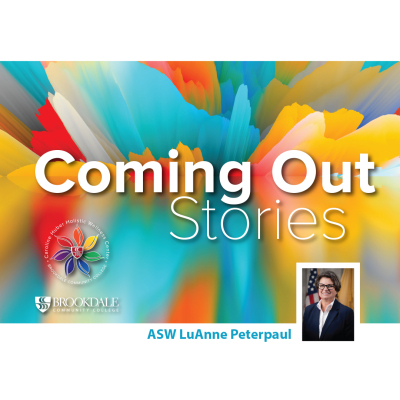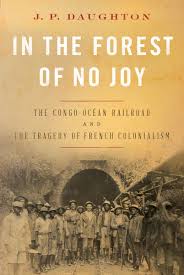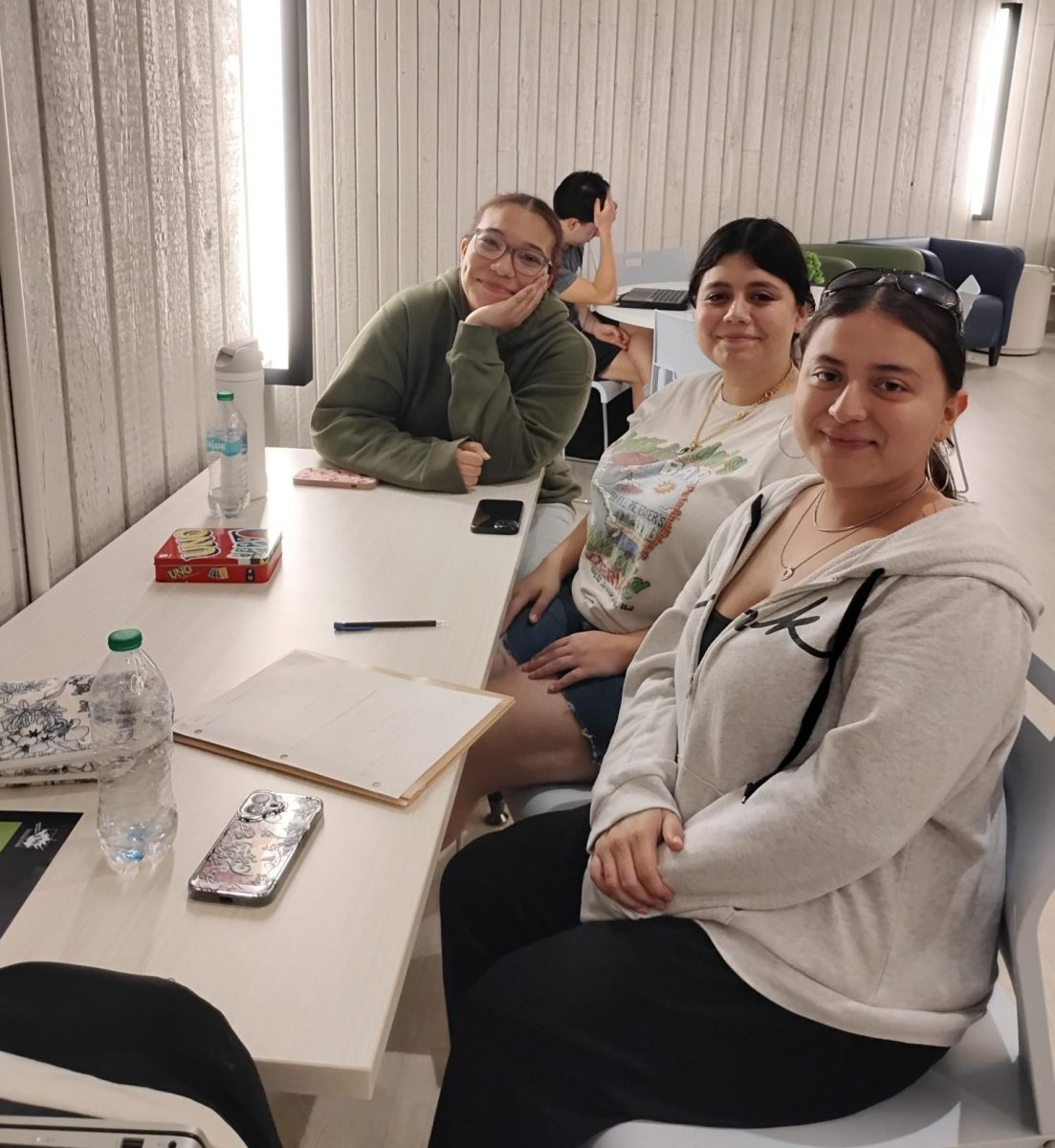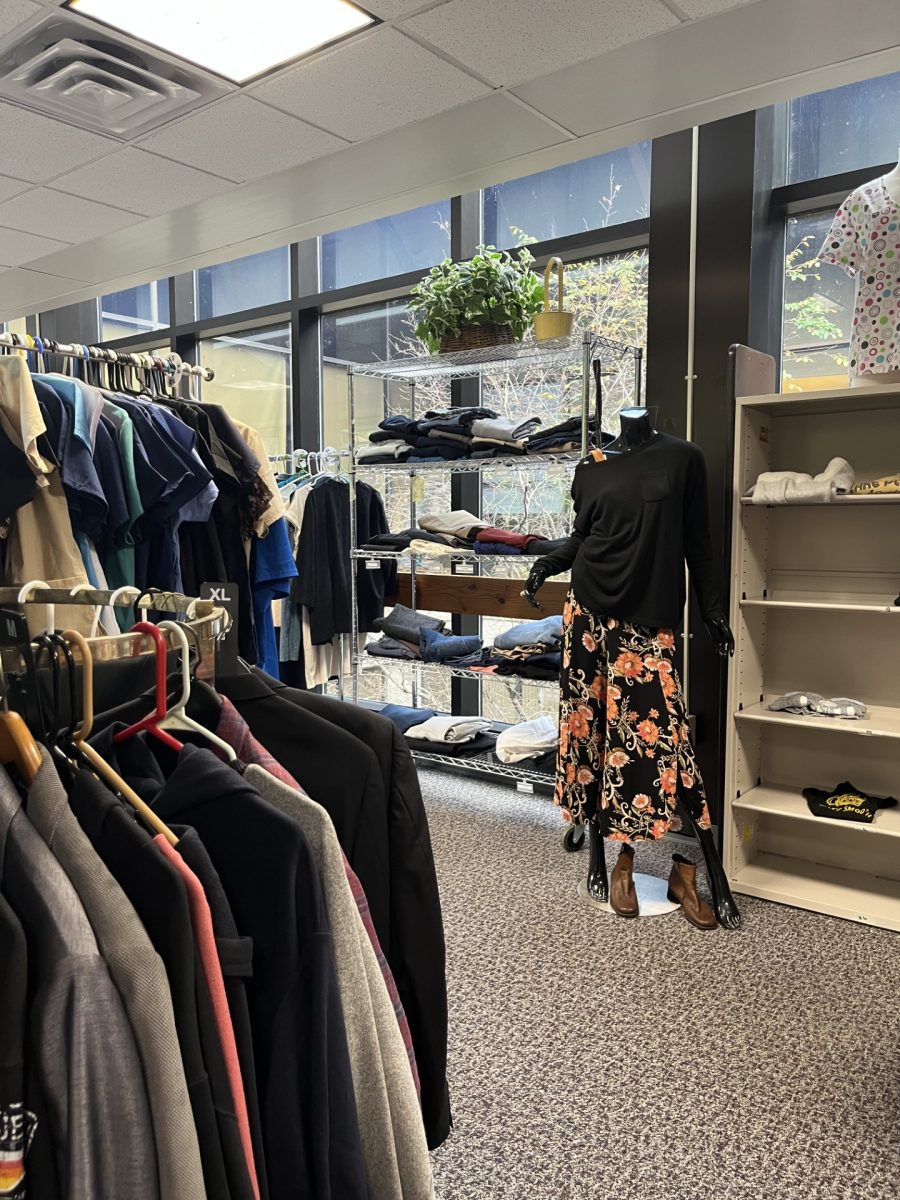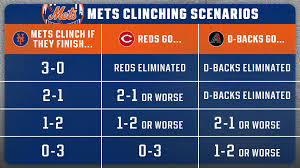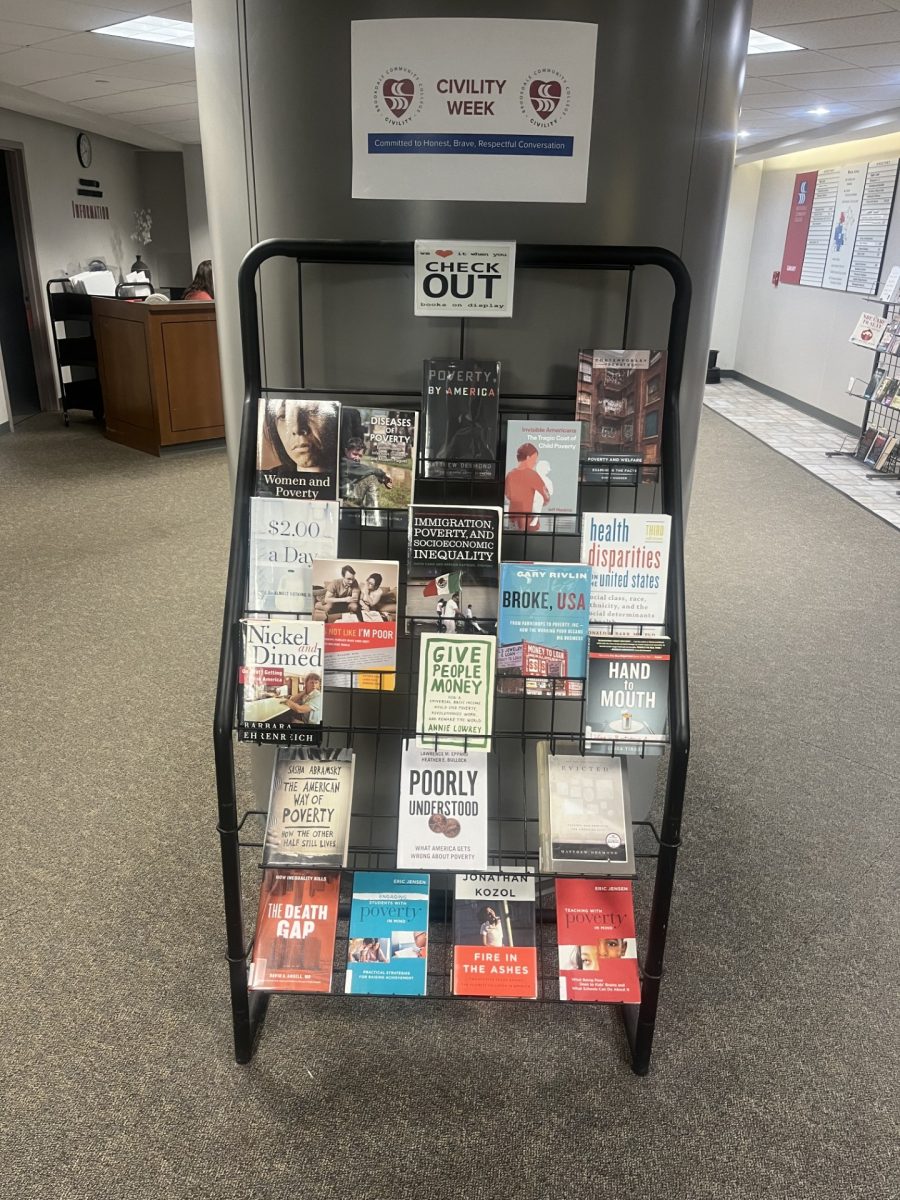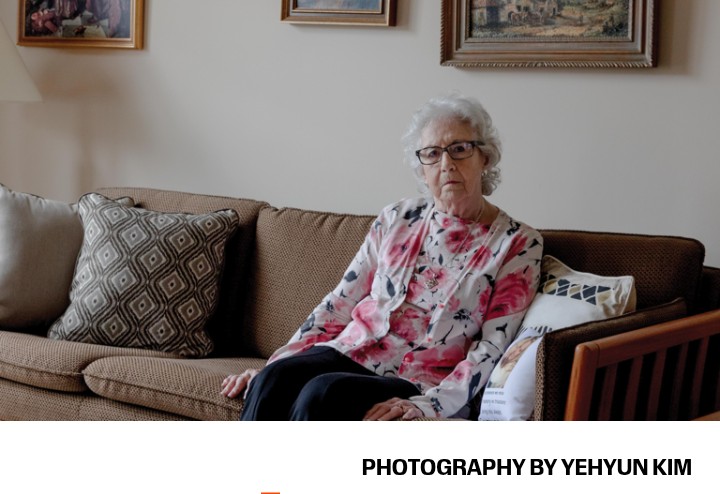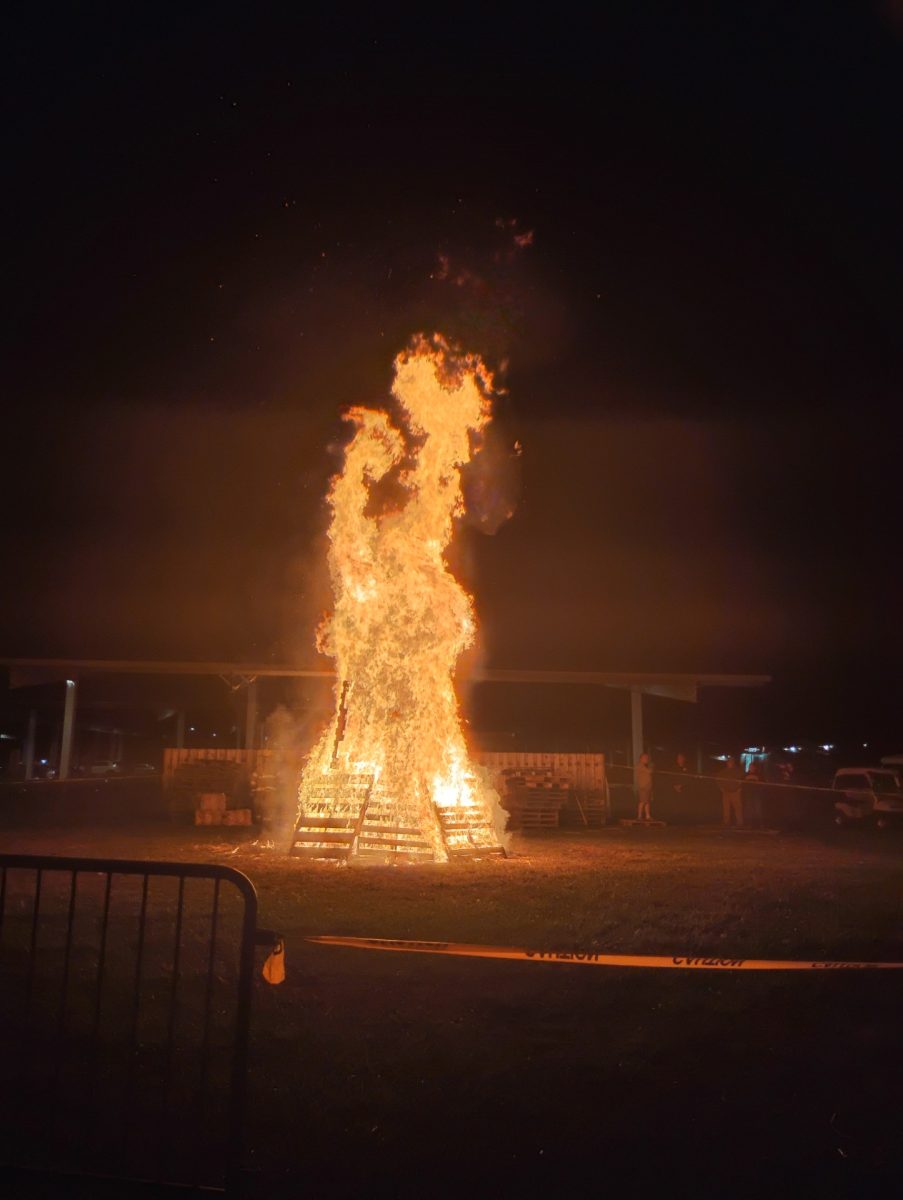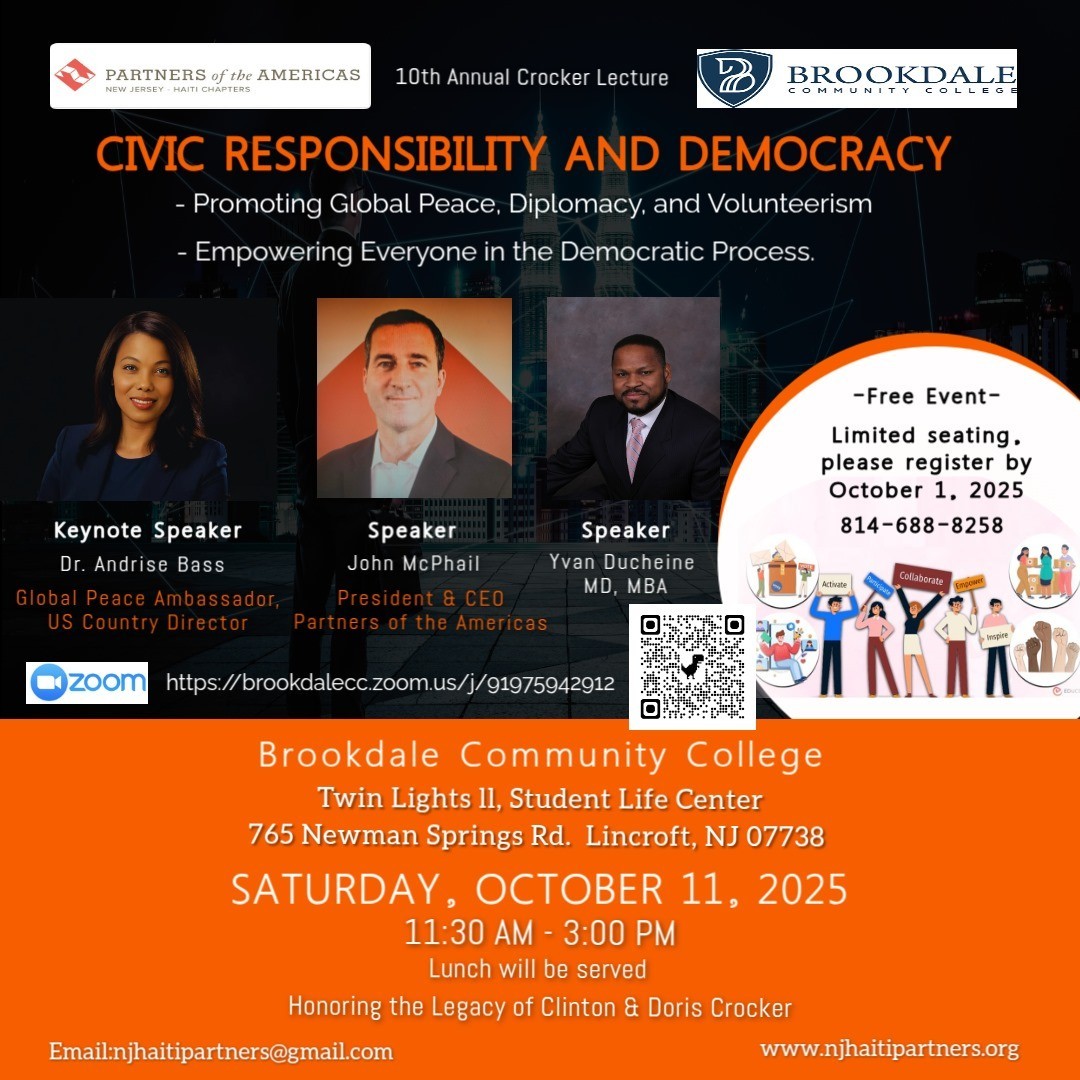As part of Civility Week at Brookdale, a discussion was held Oct. 10 in the SLC aimed at understanding inequality in America.
Hosted by Sociology Professors Caroline Calogero and Diditi Mitra, the event brought together students and staff to discuss inequality through a sociological perspective.
Before it officially started, the Civility Week Community Agreement was read to the room, a tradition that takes place at the start of all Civility Week events. The full agreement can be found on Brookdale’s website.

Civility Week is a semi-annual event at Brookdale where everyone is encouraged to engage in programs designed to foster an understanding of the meaning of civility.
As for the content of the conference, it was emphasized that everything discussed would be backed by concrete statistics and numerical data.
Calogero and Mitra began the discussion by describing how American culture is a meritocracy – a society based on the theory that you can properly move up the social ladder via hard work and earning respect. Once the two had explained that in America the theory is where you end up in terms of social status is all up to you, Calogero said, “We’re going to push back on that popular approach.”
The point that Calogero was making is that there are so many more factors that influence where someone ends up in society. Socioeconomic and demographic factors that people were born with or grew up in factor into each person’s success.
For instance, Calogero brought up gender and how pregnancy and motherhood can disenfranchise women in the workplace.
Mitra explained how women often have to make a hard choice between fully focusing on their career or starting a family knowing that their employers might hold back promotions.
“The woman herself will make that decision,” Mitra said. However, she said women are often judged for not having children and that decision, too, can be held against a woman in the workplace.
Calogero spoke about the correlation between education and an individual’s personal wealth. Earlier in the conference, the sociological difference between wealth and income was described as income is a person’s yearly salary or their wages, while wealth is the assets and items of value they hold.
Calogero displayed the results of one study that showed those who participate in higher education generally earn a higher income. This also meant those without any form of higher education were in the opposing financial status.
“You would expect people who are high school dropouts to have very little personal wealth,” Calogero said. However, it was also discussed that the quality of K-12 education can have a massive impact on income and wealth later in life as well.
In the second half of the conference, the conversation shifted to taking a look at inequality on a more national level. There is a tool used to measure inequality in any nation known as the Gini coefficient, and it measures inequality on a simple scale from 0 to 1. The closer to 1, the higher the inequality of a nation, and vice versa for 0.
According to data from the Federal Reserve, inequality has been on the rise in the U.S. since the 1970s. Compared to nations at the same economic and developmental level – especially much of Europe – the U.S. has a higher coefficient, or greater inequality
The speakers said the biggest burdens to the economy that has led to this massive inequality are high costs in healthcare, education, real estate/housing, and a tax structure built to benefit the very wealthy.
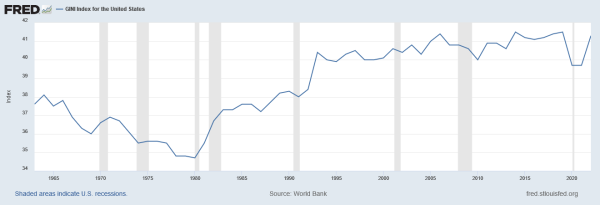
Categories:
Brookdale Strives To Understand Inequality In America
Benjamin Prozeller, Staff Writer
October 19, 2024
0
More to Discover

